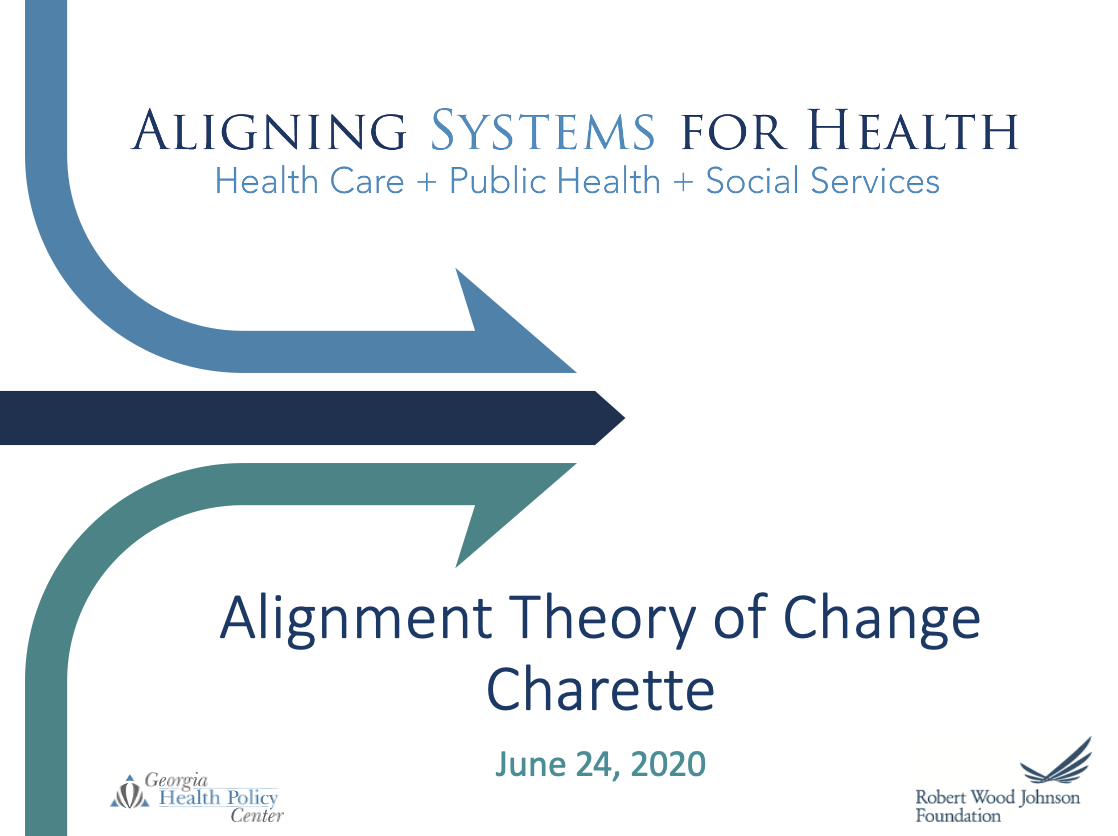
This webinar features an overview of the Robert Wood Johnson Foundation’s (RWJF’s) Cross-Sector Alignment Theory of Change and recaps stakeholder input into how the Theory of Change can better support the work of those implementing cross-sector alignment. The output of this session will drive the next iteration of the Theory of Change.
The Cross-Sector Alignment Theory of Change grew out of many years of work and learning within RWJF. Since its launch one year ago, the Aligning Systems for Health team has been gathering feedback from research and practice to advance the Theory of Change to its next iteration.
According to the Oxford dictionary, a charette is a meeting in which all stakeholders in a project attempt to resolve conflicts and map solutions. On June 24, we began the virtual event by hearing about the Cross-Sector Alignment Theory of Change’s origins from Hilary Heishman, senior program officer with RWJF, followed by a brief description about how the theory of change is guiding the work of Aligning Systems for Health.
We then divided up into small, facilitated conversations around the theory of change and gathered your input, insights, and feedback. Finally, we came back together as a group to raise up themes we heard in our small-group work.

 Back to Resources
Back to Resources